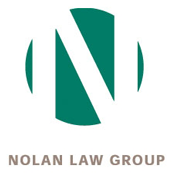The families of those killed in 2009 on Continental flight 3407 are urging all holiday travelers to make sure they know just who is operating a flight they may book.
Recall that Continental flight 3407 was actually operated by regional carrier Colgan Air. This airline was doing business as Continental Connection, and its airplanes were painted in Continental livery. The families regard a regional airline masquerading as a national carrier as a deceptive business practice. Only the name “Connection” distinguished the regional carrier as different from Continental Airlines. The difference is significant: regional carriers generally do not have the financial resources to have the same safety standards as their national cousins. At regional airlines, the Federal Aviation Administration (FAA) minimums are adhered to, but the carriers’ hiring practices, aircrew scheduling, safety monitoring and maintenance practices can be substantially lower than practices at national airlines. This was plainly evident at recent National Transportation Safety Board (NTSB) events exploring these issues. (See Aviation Safety Journal, “Code-Sharing & Passing the Buck on Safety” and the February 2010 article, “General Industry Laxity Criticized in Wake of Colgan Air Crash”)
The NTSB hearing on the crash of flight 3407. The families have been galvanized into action on the code-sharing that abetted slipshod safety practices.
The families urge the public to know just who is providing their air transportation, as it is oftentimes difficult to determine just which company is operating the flight.
Seal of the Flight 3407 Families
In a 7 December press release, the Flight 3407 Families kicked off their holiday season awareness campaign:
“Turning their attention from getting major aviation safety legislation passed to getting it implemented, the ‘Families of Continental Flight 3407’ announced the kickoff of a major public outreach effort aimed at raising the flying public’s awareness of regional airlines operating flights under the auspices of the mainline carriers. The campaign also targets airlines, ticketing agents, and websites that are not complying with a new federal regulation requiring transparency in the advertisement of regional carriers.
“ ‘We are planning to reach out to thousands of family members, friends, supporters of our cause, and the general flying public to spread the word about this critical initiative,’ stated Susan Bourque, of East Aurora, NY, who lost her sister … on Flight 3407. ‘For the many Americans who buy only one plane ticket all year to be with their families during the holidays, we want to make absolutely certain they are aware that even though they may buy a ticket on the Continental website, check in at the Continental ticket counter, and board a plane painted in Continental colors, they may very well be on a flight operated by Colgan Air, and that may have consequences from a safety standpoint. (This) is the tragedy that befell (the victims) of Flight 3407, and we are determined to ensure that this never happens again.”
“The above referenced legislation … calls for the full disclosure of the regional carrier operating every flight segment of a given itinerary, and in particular targets Internet sites that do not disclose this information on the initial listing of any flight in a manner ‘that is easily visible to a viewer’ … This provision was … included in the landmark ‘Airline Safety and Pilot Training Improvement Act of 2009’, which was introduced by the bipartisan leadership of the House Committee on Transportation and Infrastructure (and) … was part of legislation that was finally signed into law by President Obama on August 1st …
“ ‘Between now and Christmas, we are asking every traveler to take an extra moment of their time to investigate their ticketing vendor of choice, whether it be an 800 number, an Internet website, or a travel agent, and to pay close attention to whether the regional carrier is being promptly and completely identified,’ declared John Kausner … who lost his 24-year old daughter (on Flight 3407). ‘Seemingly the only way we can get the major carriers like Continental to pay closer attention to the safety practices of their regional partners like Colgan if the customers become more aware of these regional airline who may have less desirable safety records and start to adjust their ticket purchasing decisions accordingly.’
“The group has already begun to identify some ticketing agencies that are not fully transparent in the manner in which they identify regional carriers …
“ ‘The goal of our efforts in Washington has been to change the system so that, one day, there truly will be no difference in safety whether a passenger boards a mainline or regional carrier,’ stated Scott Maurer … who lost his 33-year old daughter (on Flight 3407). ‘But that is still years down the road, and in the meantime, we have to make sure that all passengers know exactly which carrier is operating their flight and what that might mean safety-wise. We are calling on the Orbitz’s and Travelocity’s of the world to help us accomplish that mission and, as always, we are prepared to make noise if that is not being done.’ ”
Given that the FAA preaches the theology of “one level of safety” and regional carriers meet the FAA minimums, the question is why are the minimums so low that major carriers go to the expense of sustaining higher standards? And if Continental or other mainline carriers wish to operate smaller, regional aircraft, expanding their fleet mix while maintaining consistent above-the-FAA-minimum safety standards, why don’t they do so?
By relegating regional flights to other carriers, the majors are avoiding legal accountability for their practice. One bets the insurer of Continental would insist on a higher premium if the airline elected to operate regional aircraft at a lower safety level.
Moreover, companies like Colgan get to operate on the coattails of major airlines, without the cost of mainline safety, training and maintenance standards.
The desire to save money has abetted the current situation where a cheap regional carrier can “do business as” its mainline counterpart, and confuse the public by painting its airplanes with the color scheme of the major airline.

